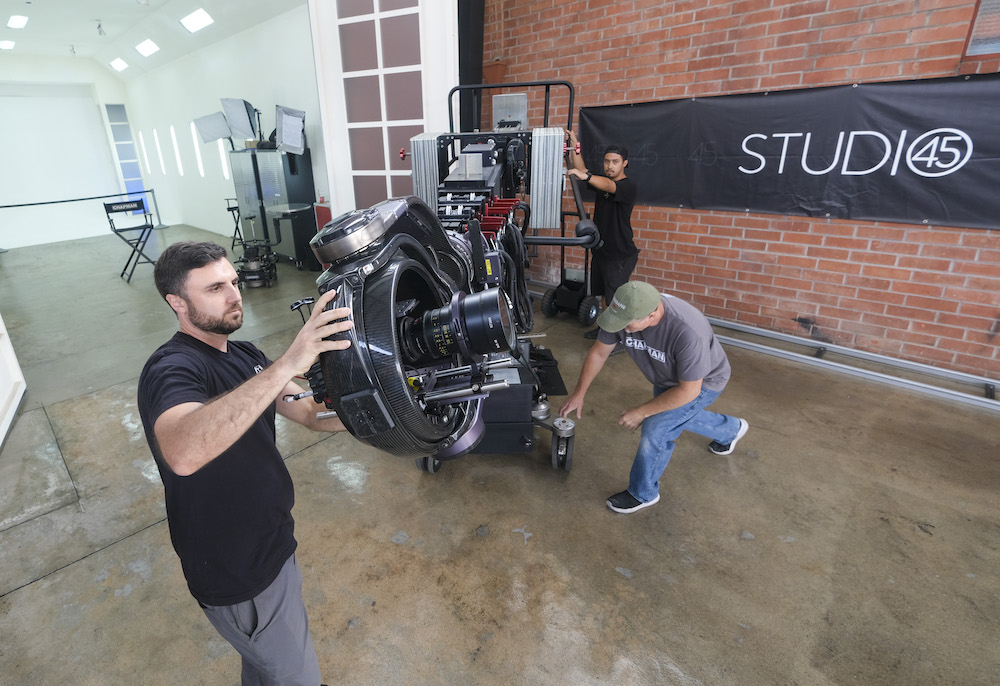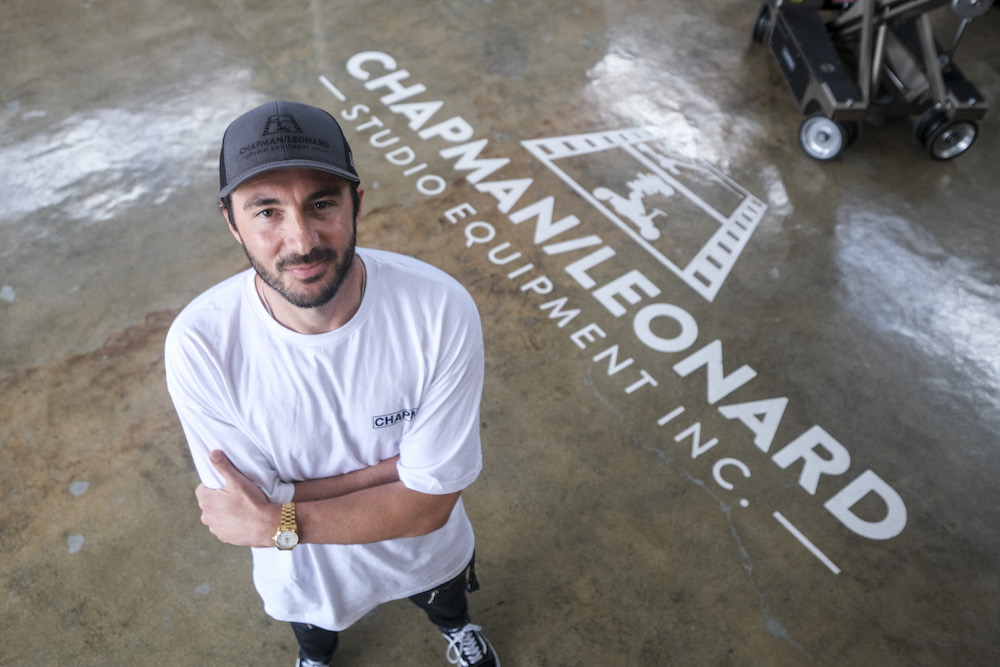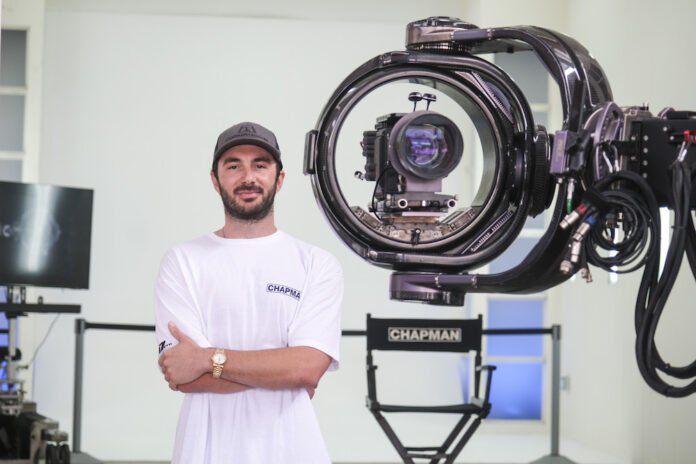After overcoming setbacks related to the pandemic, the myriad web of small companies and businesses that support film and TV production here are beset with the double-whammy of strikes throughout the industry.
For the folks at Chapman/Leonard Studio Equipment, who provide high-tech dollies and other equipment necessary for studio filming, it has severely affected operations. The strikes have shaved off a significant chunk of Chapman/Leonard’s revenue, prompting layoffs as its buckles down for the long haul.
“We were on a huge growth trajectory before the strike hit,” said Charlie Huenergardt, president and chief executive of Chapman/Leonard.
Huenergardt’s company is emblematic of the concentration of smaller businesses in the Valley that cater to the entertainment industry. Sanjay Sharma, an adjunct professor of finance and business economics at USC Marshall School of Business, described the strikes as creating a “small business catastrophe” that will further resonate around the San Fernando Valley as they continue. He estimated that the strikes are costing the L.A.-based film and TV industry upward of $1.5 billion in local GDP.
“It is having a devastating effect on the industry, particularly in L.A.,” Sharma said. “The smaller businesses, or any other company that is directly related to the industry – so they have no other revenue – are getting hammered, kind of beyond belief. This is their only source of revenue. That has a trickle-down effect, a multiplier.”
Family business

Huenergardt grew up with Chapman/Leonard, but took an unorthodox path to running it.
Huenergardt’s grandfather founded the company in 1945, and it quickly made a name for itself with its innovative camera dollies, which became a standard in the film industry. The company advanced its dollies over the decades, and also developed a variety of cranes, vehicles and other camera systems now widely used in the industry.
“Never a dull moment since I was born, pretty much. It’s been fun, for sure,” Huenergardt said.
By the time he was 17, Huenergardt was a union-official camera operator, no doubt thanks to the skills he picked up in youth. By the time he was 23, he said, he was fed up with the hours and traveling and, with his grandfather’s blessing, formed a company, C/L Enterprises, that manufactured medical and military equipment.
Eventually, Huenergardt said he found an opening back into the family business; he looked into another company, Spacecam, which developed gyro-stabilization technology for cameras. C/L Enterprises ultimately acquired that company in 2017, making Huenergardt a competitor to his grandfather.
“They were on the right track,” he said of Spacecam. “They needed a boost and financial backing. They had been calling everywhere because they needed to make a move, and one of our employees came to me and said we should really check these people out.”
Huenergardt’s grandfather brought him back to the company just before the pandemic, making his grandson the successor president and CEO. While on his own, Huenergardt said he was able to complement the skills and knowledge he picked up as a kid with newer concepts and technologies developed in the contemporary industries he worked in.
“We were primarily a mechanical and hydraulic engineering company,” Huenergardt said of Chapman/Leonard. “I enjoyed the technology part and how sets work. I was always interested in that aspect, but I knew where technology was going, so we had to incorporate software and effects into different levels of our business.”
Caught in the middle

Huenergardt described his company as being caught in the middle of the ongoing strikes, as both the Writer’s Guild of America and SAG-AFTRA fight for new labor contracts with the studios. The fallout significantly affects the bottom lines of ancillary operations like his, yet they don’t have a seat at the table. Chapman/Leonard operates in more than 40 countries and holds about an 80% share in the dolly market for feature films, scripted television shows and other high-level productions, he said.
“We went through a writers’ strike in 2008, but this one, with both writers and actors going on strike, has really started to impact our market,” he said. “The European market is starting to feel a little bit of impact from the American scripted shows that are over there. Here in the States, it’s been pretty bad. The writers’ strike brought us down to 60% of our normal business. The actors strike brought us down to 10%.”
That 10% is music video and commercial production, live TV and sports, Huenergardt said.
“For us, we’re very fortunate to have the diversification of sports in a time like this, to keep everything moving,” he added.
Sharma, at USC, described the strikes as creating a “small business catastrophe” that will further resonate around the San Fernando Valley as they continue. He estimated that the strikes are costing the L.A.-based film and TV industry upward of $1.5 billion in local GDP.
“It is having a devastating effect on the industry, particularly in L.A.,” Sharma said. “The smaller businesses, or any other company that is directly related to the industry – so they have no other revenue – are getting hammered, kind of beyond belief. This is their only source of revenue. That has a trickle-down effect, a multiplier.”
Moving forward
While the strikes have pushed Chapman/Leonard to lay off about 50 workers, Huenergardt said it was also an opportunity for him to restructure the company and make it more modern and efficient. He’s also looking to continue building out an 80,000-square-foot location in Georgia, which will allow him to undo some of the piecemeal expansions carried out at the company’s longtime Valley Glen base.
“Business was just so different back then, a lot of handshake-type business. The company grew really quickly in the 1960s and ’70s. It never really had the organizational or operational structure to grow or handle the scale which we got to,” he explained. “We’ve been building on top of ourselves, and it’s not exactly geared for the most beneficial workflow for what we do.”
And while the company directly leases equipment to production companies, especially in the L.A. region, it also has a network of other operations that rent equipment from Chapman/Leonard and sublease them to production operations in their own markets. To help those companies, Huenergardt said he is offering credits and financial assistance.
On the topic of assistance, Sharma said Sacramento should step in to provide financial help to affected companies, a response that county- or city-level governments probably could not afford.
“I would say that the state should create some kind of a loan program, like during Covid,” he said.
